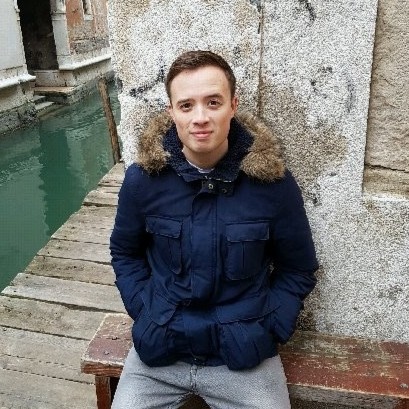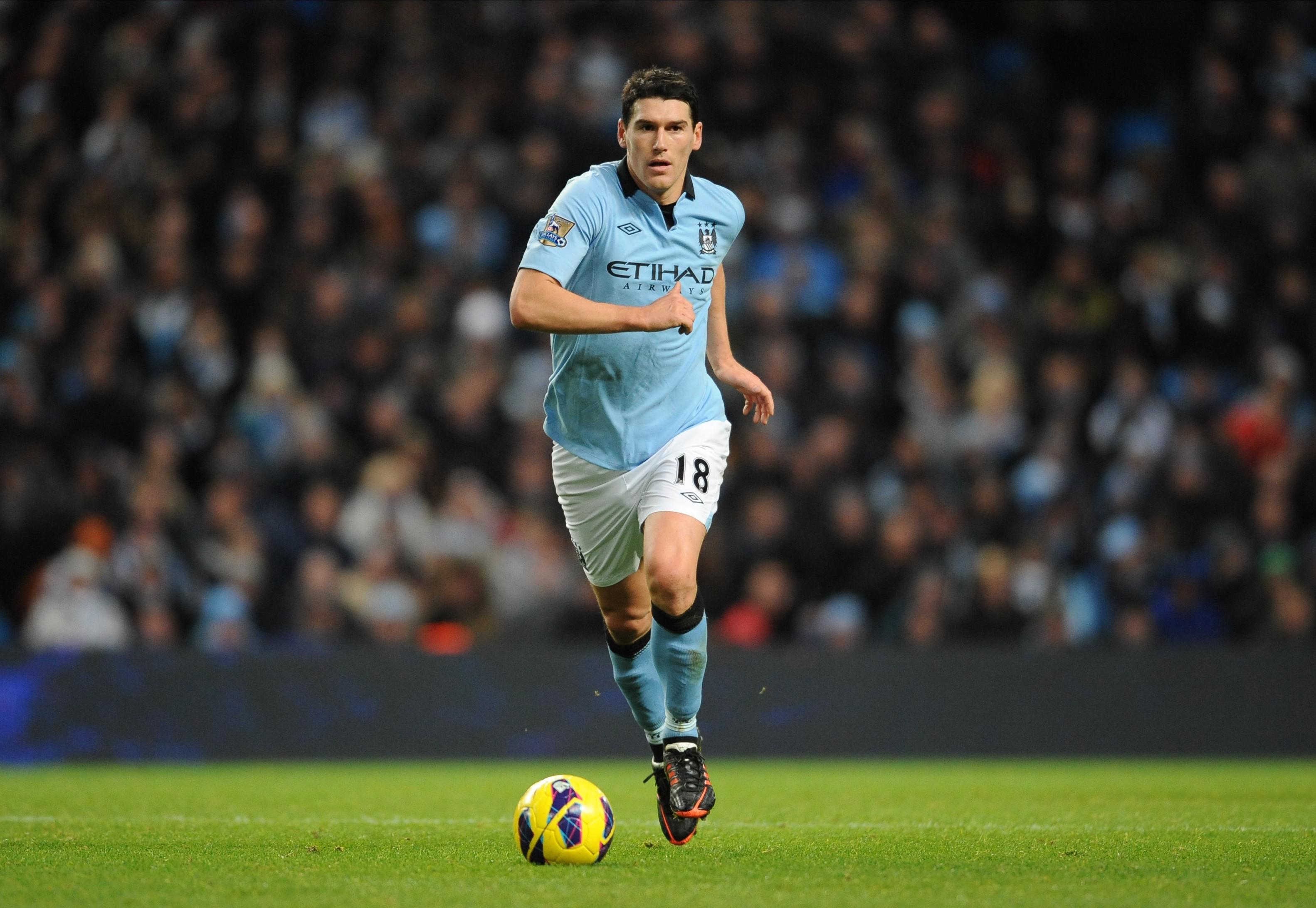One team in Tallinn: when Scotland kicked off against nobody – and still didn't win
Joe Brewin recalls Scotland's bonkers trip to Estonia, when both sides' stubborn protests were only the beginning
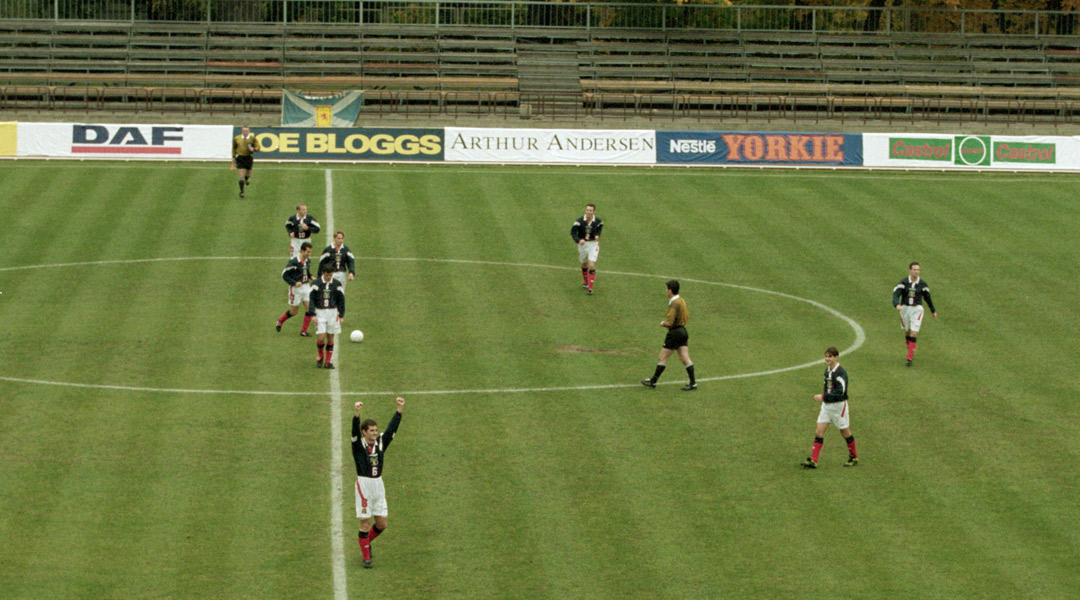
Miroslav Radoman was a stickler for detail. The Yugoslav referee would, of course, treat this game like any other. And so it was that he and his two assistants took to the field at the Kadriorg Stadium, exchanged handshakes and formalities in the centre circle – coin toss included – before nets were checked and play could begin.
Scotland duly kicked off their third game of World Cup 1998 qualifying on October 9, 1996; Billy Dodds, winning only his second cap, prodded the ball to new skipper John Collins, only for full-time to be declared three seconds later. Before the 600 or so jovial Scots on the terraces could finish their first chant, their full kit-clad heroes celebrated with mock glee and trudged back to the dressing room.
This was the most one-sided game in international football... quite literally. Without even breaking sweat, Craig Brown’s men had taken a step closer to France ‘98 after an Estonian no-show.
Or had they? If only things had been quite so simple.
“We pitched up as usual the night before,” former midfielder Craig Burley tells FFT. “But Craig Brown wasn’t particularly happy with the facilities: there was a floodlight issue.
“The pitch was pretty much… well, I wouldn’t even call it a non-league ground. It wasn’t even that good, a shabby old thing. The lights were really low and I think he found it was going to be a problem.”
Dim view
Get FourFourTwo Newsletter
The best features, fun and footballing quizzes, straight to your inbox every week.
Indeed it was. The farce had begun the night before the game when FIFA's match delegate, Jean-Marie Gantenbein, raised concerns about the temporary floodlights rented from Finland. Nevertheless, after some light checks, Gantenbein confirmed that kick-off would take place at the originally scheduled time of 6.45pm.
Scotland filed a complaint to FIFA headquarters in Zurich, and, after a late-night meeting (2.30am, naturally), it was decided that the game would be moved to a 3pm afternoon kick-off.
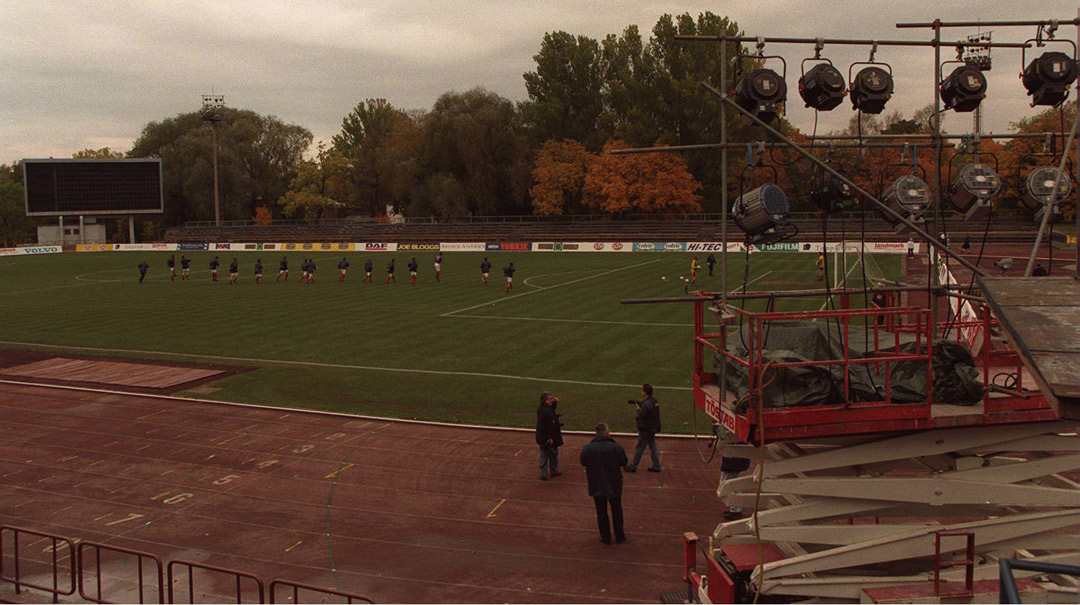
Estonia were unamused. For starters it was a Wednesday, meaning a logistical nightmare for their part-time players and working fans – not to mention their training base being over 60 miles away in Kethna. More importantly, perhaps, was that the BBC had agreed to pay them £50,000 to air the game – money they would be seeing a mere fraction of with the new kick-off time, if any at all.
“At first we didn’t really believe it; that this wasn’t right, and they couldn’t change the kick-off on the day,” ex-Estonia goalkeeper Mart Poom tells FFT. “We found out about 11am, or something – quite late, and it was a working day. To rearrange things like security would have been impossible. We were thinking there would be no fans too.
“At that time we were feeling a bit like we were being treated like a young and small country, and people could just do whatever they wanted to us.”
Been and gone
So Estonia’s plans remained unchanged – they would turn up for the pre-arranged 6.45pm kick-off. Aiver Pohlak, Estonian FA president, lamented the Scots for being “very, very unfair to us”. “We shall leave our headquarters at 4pm as scheduled for a 6.45pm kick-off,” he declared. “We know that the Scots will have been and gone by then and there will be no game today.”
And thus began a stubborn battle of bluff-calling and futile hope that perhaps the other side might cave eventually.
“Browny being Browny,” recalls Burley, “the most meticulous man that ever walked this earth – was dubious. He was paranoid and thought we had to prepare properly.
“He was adamant that the Estonians would turn up right before kick-off, get off the bus and play. So he was trying to keep the lads from taking the piss, which by this time we were.
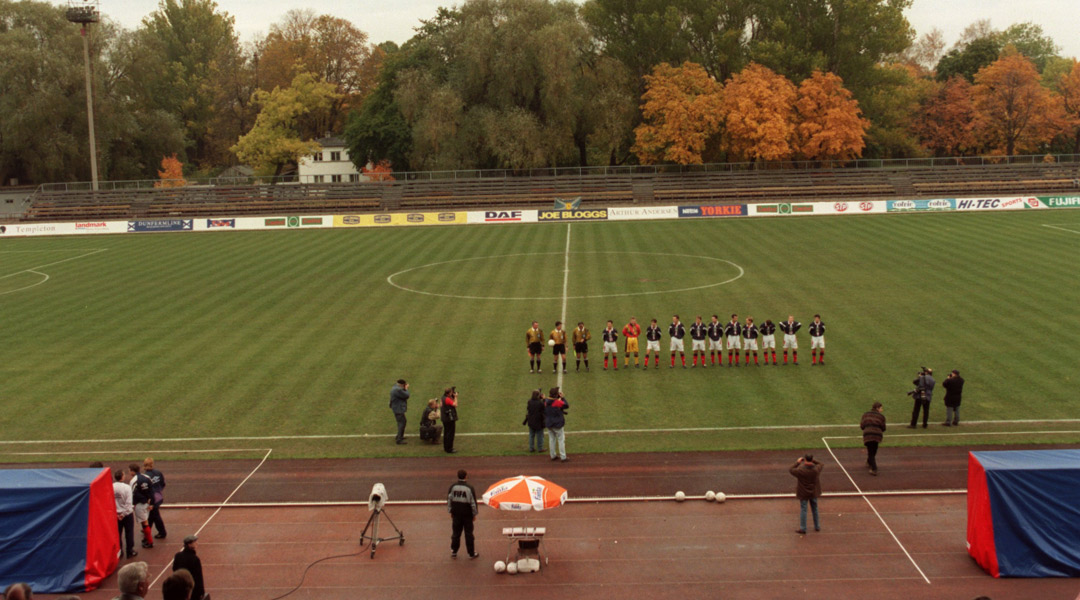
“It did just feel stupid. I remember the boys sniggering in the tunnel with the officials and nobody else. Browny told off Darren Jackson for joking around, but by this time we just wanted to get on the plane and get home. It had become a sham. We did all of the usual rigmarole, but just didn’t have anybody across from us.
“It was quite funny at the time, though; the boys were all asking: ‘Do we get a cap for this?’”
"God, I hope this isn't them"
The travelling Tartan Army chanted “One team in Tallinn!” as they filed out – but Estonia did indeed stick to their end of the bargain by showing up later.
“I think we thought that maybe Scotland would come back, because it was so bizarre,” admits Poom. “Even though we’d seen on the news that Scotland had kicked off in an empty stadium, and Scottish fans had invaded the pitch.
“Obviously we wanted to play, and if I remember rightly there were a few Scottish players injured that day. We felt like we had a chance at home.”
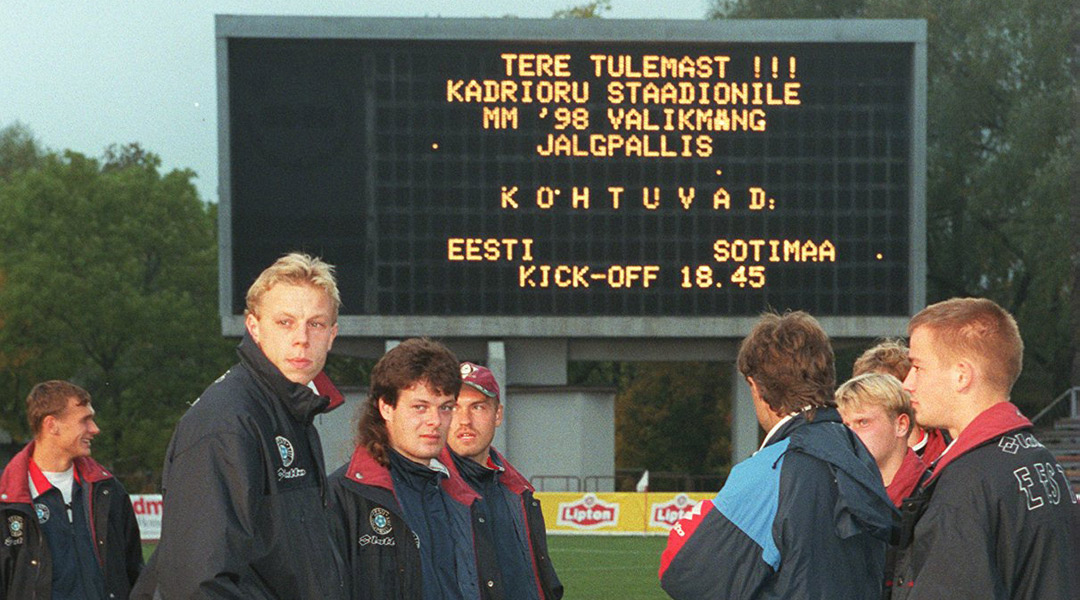
Burley’s memory is somewhat hazy, however. “They turned up did they?” he chuckles. “To this day I never knew that. I’ll be honest, I didn’t want to play in the game because it had become a farce.
“When I was training pre-match I remember seeing vehicles turn up in the car park and thinking ‘God, I hope this isn’t them’. I just didn’t want to play; my mind wasn’t on it because so much crap had been flying around.
“We went straight to the airport, to the bar as usual, and had a few beers. We may well have left Estonian airspace by the time they showed up – and been half cut!”
Twist of fate
In the aftermath, officials from both camps waded into the debate; Scotland were expecting a 3-0 walkover, while Estonia stuck to their complaints that the late switch made it logistically impossible for them to fulfil the revised kick-off time.
Back into play came bumbling delegate Gantenbein, who suggested that Brown’s men would be awarded the win. That was good news, particularly with Gary McAllister suspended for this fixture and poised to return for a crucial clash against Sweden.
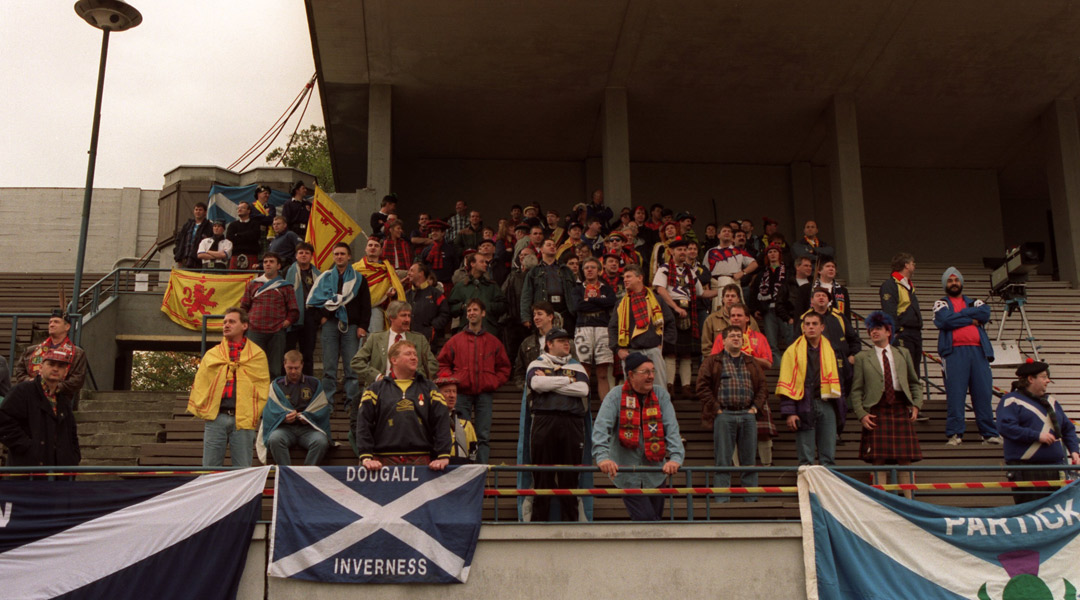
A committee, chaired by (Swede) Lennart Johansson – then UEFA president and FIFA vice-president – met almost a month later to decide their verdict. Contrary to Gantenbein, Johansson had suggested a replay would be the best course of action at the time, and sure enough that’s what happened. Four months later. In Monaco.
“I was injured thankfully,” Burley jokes. “It finished 0-0 – another glorious evening for Scotland...”
Little did the former Chelsea and Celtic man know, though, was that this sham of a replay would ultimately pave the way for Poom to join him at Derby (and then, later, play for three more English clubs). The duo spent four seasons together at Pride Park before both leaving upon the Rams’ relegation in 2002.
“I have to admit that for my career it was important the match was rescheduled,” Poom reveals. “If we had played in the October, I might not have had the chance to play in England again.
“Jim Smith was Derby manager, and he’d already signed me once before for Portsmouth in 1994. I didn’t have such a good time at Pompey with injuries, and not playing enough first-team games to get a work permit, so I came back to Estonia.
“I was determined to do whatever it took to get back to England. So I worked really hard, Jim kept an eye on me and luckily he’d asked Scotland’s goalkeeping coach Alan Hodgkinson to have a look at me during the game in Monaco. As things turned out it was a good one for me, with a clean sheet and some important saves. Then I signed for Derby on transfer deadline day the following month.”
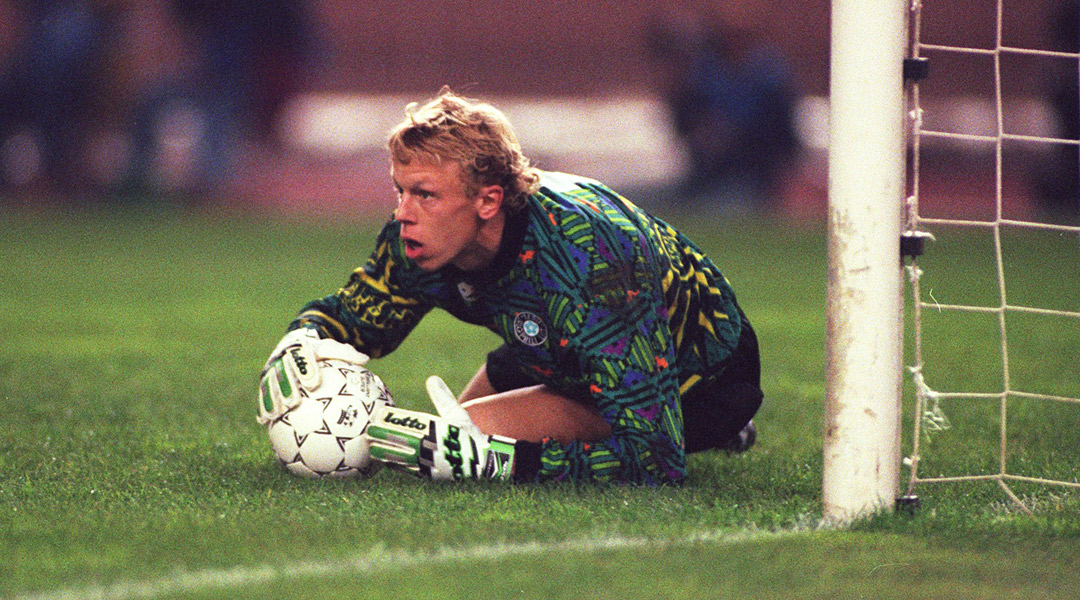
History lesson
Scotland qualified for France '98 anyway – still their last major tournament – two points ahead of Sweden, who they beat 1-0 at Ibrox in their next game without McAllister. Estonia picked up just four points from their 10 matches and finished joint-bottom of the group, after going down 2-0 to Brown’s side at Rugby Park later in qualification.
This wasn’t the first, or only occasion on which an international team hasn’t turned up, however. In a play-off for the 1974 World Cup, after a 0-0 draw in the first leg, the Soviet Union refused to play the second at Chile’s Estadio Nacional in the aftermath of brutal executions at the stadium under the terrifying Augusto Pinochet regime. FIFA had shunned their appeals for the game to be played at a different venue, the Soviet Union were expelled and Chile progressed before crashing out in the first group stage.
Much like Scotland in France...
Now go read...
REMEMBERED! When Leeds' Class of '92 punished Stuttgart for a big night in Barcelona
LIST 9 managers who returned to ex-clubs – and what happened next
ONE-ON-ONE Andy Cole: "Playing with Dwight Yorke was like meeting a special woman and falling in love"
Joe was the Deputy Editor at FourFourTwo until 2022, having risen through the FFT academy and been on the brand since 2013 in various capacities.
By weekend and frustrating midweek night he is a Leicester City fan, and in 2020 co-wrote the autobiography of former Foxes winger Matt Piper – subsequently listed for both the Telegraph and William Hill Sports Book of the Year awards.
